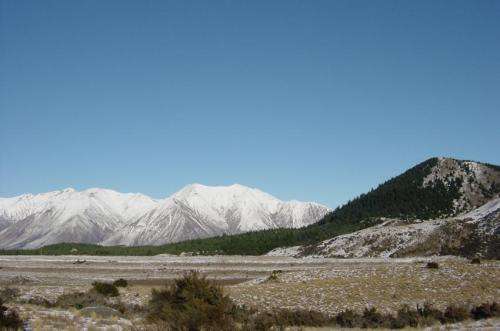'Big data' takes root in the world of plant research

Botanists at Trinity College Dublin have launched a database with information that documents significant 'life events' for nearly 600 plant species across the globe. They clubbed together with like-minded individuals working across five different continents to compile the huge database of plant life histories, for which data have been gathered over a near 50-year span.
At a time in which climate change and increasing human populations are rapidly re-shaping plant distributions, the researchers hope their COMPADRE Plant Matrix database will foster collaborations between scientists and allow them to better answer questions such as how we can conserve the species that are critical for ecosystem services, and which may provide food for billions.
The researchers have just published an article in the prestigious international, peer-reviewed publication Journal of Ecology that describes the database. By making the precious data it contains free to download, they hope to inspire and accelerate important global research on plant biology.
"We hope that other scientists will use these data to answer questions such as why, unlike humans, some plants don't deteriorate as they age, why some environments are better for agriculture than others, and how fast plant populations will move in response to climate change," said Professor of Zoology in Trinity's School of Natural Sciences, Yvonne Buckley.
She added: "Making the database freely available is our 21st Century revamp of the similarly inspired investments in living plant collections that were made to botanic gardens through the centuries; these were also set up to bring economic, medicinal and agricultural advantages of plants to people all over the world. Our database is moving this gift into the digital age of 'Big Data'."
We are used to shops, websites and companies keeping track of our purchases, what we eat, who we date, and even when and how we exercise. Keeping track of the most intimate details of life, death and reproduction should not be unique to human populations, though.
We rely on plants for some of our most basic needs like food, shelter and clothing. It is therefore vital that we know the 'hows', 'whys' and 'wherefores' governing the success of a diverse range of plant species so that we can protect them and put them to use for the good of the world.

The COMPADRE database contains far more information than one person could ever hope to pull together over a lifetime. The data have been collected over the past 48 years by many scientists on five continents, with sites ranging from the searing heat of deserts to the freezing cold of arctic and alpine plant communities. As a result, there are almost infinite questions for researchers to explore.
The Max Planck Institute for Demographic Research (MPIDR) funded a lot of the data collection. The MPIDR is world renowned for its work on human population change, ageing and fertility, as well as the demography of animals and plants.
More information: Paper: onlinelibrary.wiley.com/doi/10 … -2745.12334/abstract
COMPADRE Plant Matrix database is freely available to download: www.compadre-db.org/
Journal information: Journal of Ecology
Provided by Trinity College Dublin

















